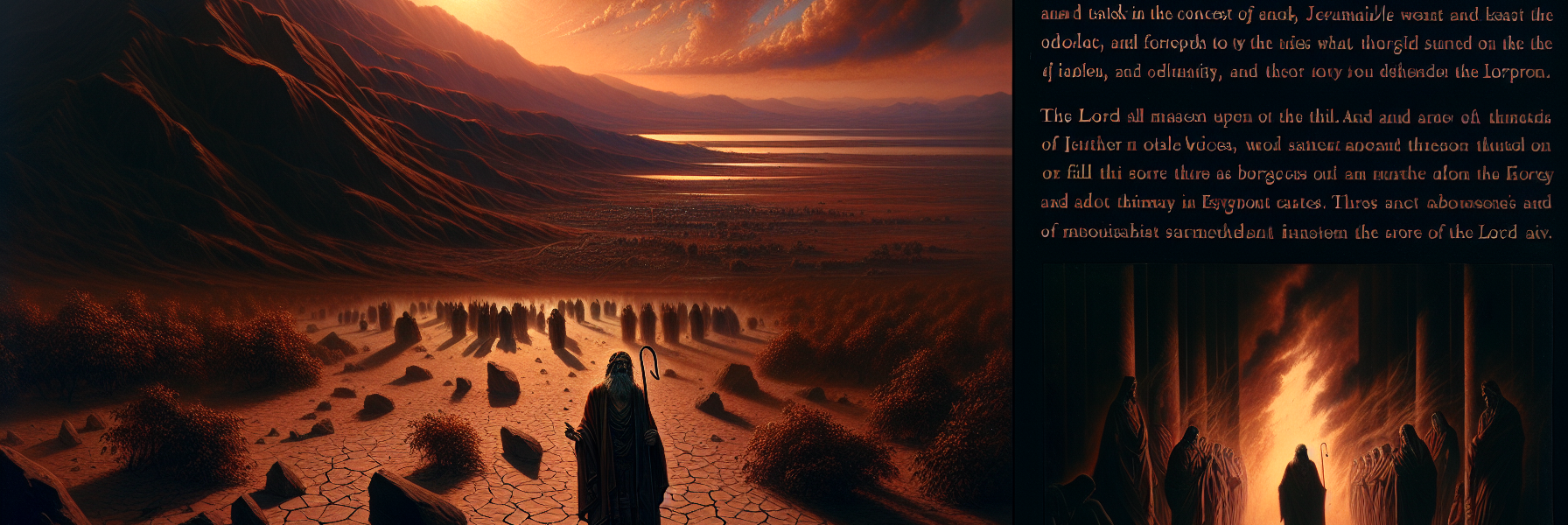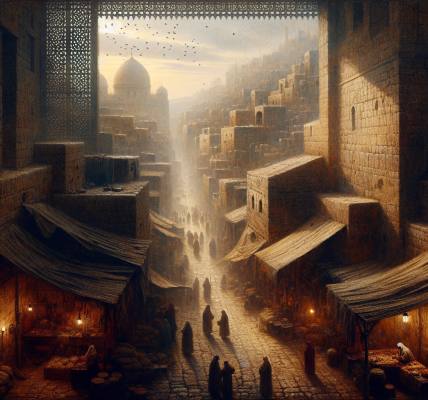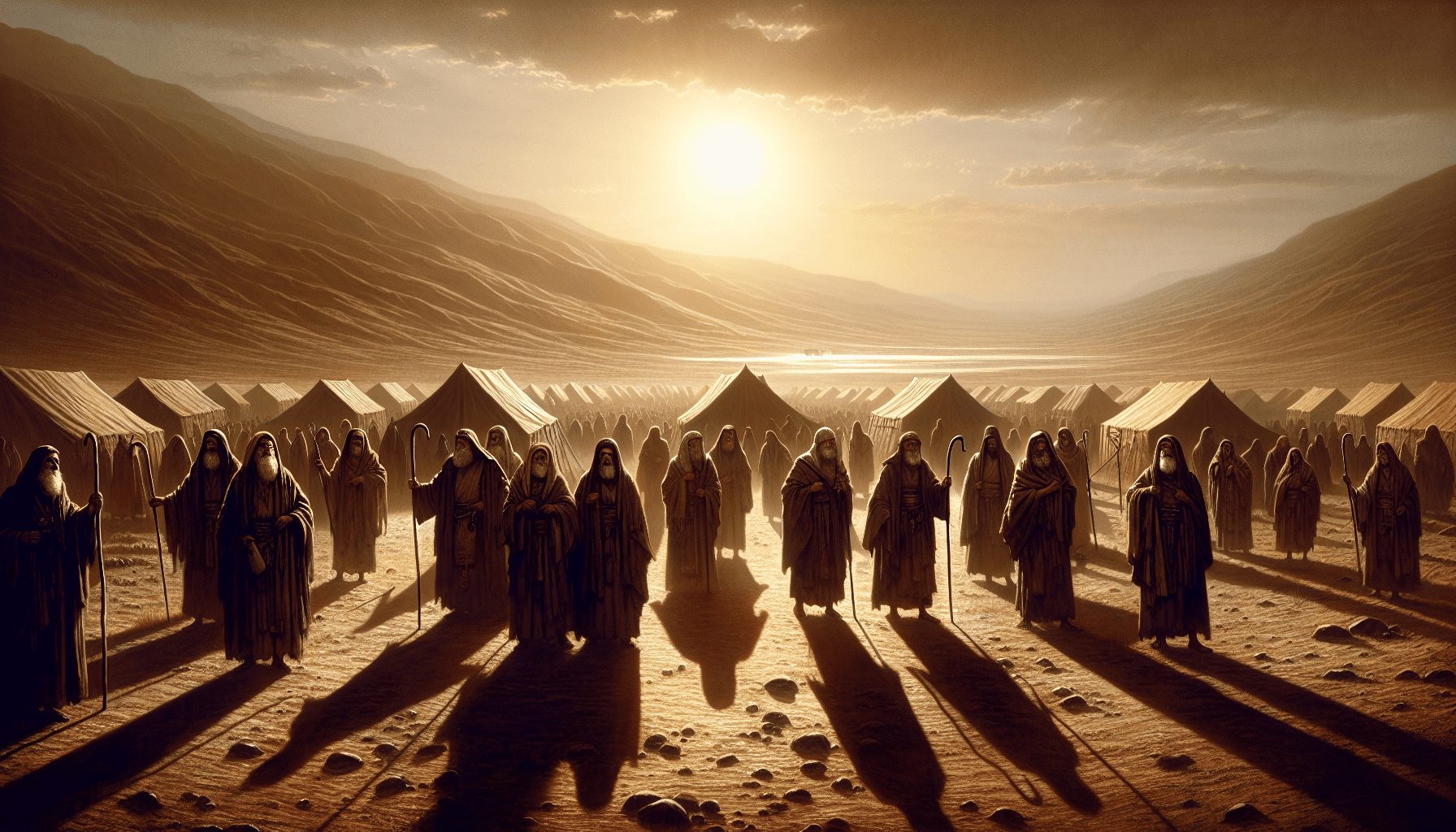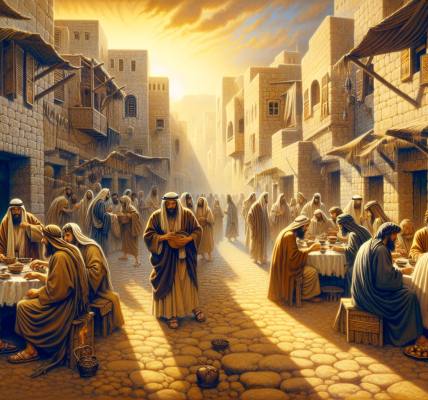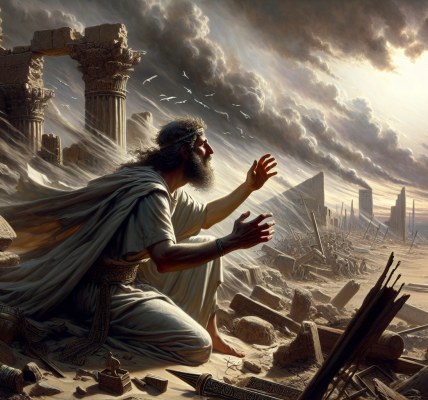**The Broken Covenant and the Call to Return**
The sun hung low over the hills of Judah, casting long shadows across the rocky terrain. The land, once fertile and abundant under the blessing of the Lord, now bore the scars of drought—cracked earth and withered vines whispering of judgment. In the city of Jerusalem, the prophet Jeremiah stood in the temple courts, his heart heavy with the word of the Lord. The people had turned away, chasing after idols and forsaking the One who had brought them out of Egypt.
The Lord spoke to Jeremiah, His voice like a roaring wind yet tender as a father’s plea: *”If a man divorces his wife and she leaves him and marries another man, should he return to her again? Would not the land be completely defiled? But you, Israel, have lived as a prostitute with many lovers—yet you dare to return to Me?”* (Jeremiah 3:1).
Jeremiah’s chest tightened as the words settled upon him. Israel, the northern kingdom, had long ago been cast away for her adultery—her worship of Baal and Asherah, her alliances with pagan nations. She had been carried into exile by Assyria, her cities left desolate. And now Judah, her sister in the south, had seen all this and still followed the same path. Like a faithless wife, she pretended loyalty to the Lord while sneaking away to embrace idols in the high places, under every spreading tree.
The prophet lifted his eyes toward the north, as if he could see the ruins of Samaria, Israel’s fallen capital. The Lord’s voice came again: *”Faithless Israel has shown herself more righteous than treacherous Judah. Go, proclaim this message toward the north: ‘Return, faithless Israel,’ declares the Lord. ‘I will not look on you in anger, for I am merciful. I will not be angry forever. Only acknowledge your guilt—you have rebelled against the Lord your God, you have scattered your favors to foreign gods under every green tree, and have not obeyed My voice.’”* (Jeremiah 3:11-13).
Jeremiah’s hands trembled as he envisioned the call going forth—a divine invitation to a people who had spurned their God. The Lord was willing to forgive, to restore, if only they would turn back. But would they listen?
He remembered the days of Josiah, the righteous king who had torn down the altars of Baal and burned the Asherah poles. For a moment, Judah had seemed to repent. But Josiah was gone now, and his sons had led the people back into sin. The priests offered empty sacrifices, the prophets spoke lies, and the people clung to their delusion: *”We are safe! The temple of the Lord is here!”* as if the building itself could shield them from judgment.
Yet the Lord’s mercy still stretched out like an open hand. *”Return, faithless people,”* He declared, *”for I am your husband. I will choose you—one from a city and two from a clan—and bring you to Zion. Then I will give you shepherds after My own heart, who will lead you with knowledge and understanding.”* (Jeremiah 3:14-15).
A future hope glimmered in the prophet’s spirit—a day when the ark of the covenant would no longer be remembered, not because it was lost, but because the presence of God Himself would dwell among them. Jerusalem would be called *The Throne of the Lord*, and all nations would gather there, no longer stubborn in their evil hearts.
But for now, the people remained deaf. The wind howled through the empty streets, carrying with it the sound of distant weeping. Judah had not truly returned. She had only pretended, like a shamefaced child caught in a lie.
Jeremiah fell to his knees, tears mingling with the dust. *”Acknowledge your sin,”* he whispered. *”Break up your unplowed ground, for it is time to seek the Lord.”* (Jeremiah 4:3).
Yet even as he pleaded, he knew—the storm was coming. And only those who heeded the call would find shelter in the days ahead.
